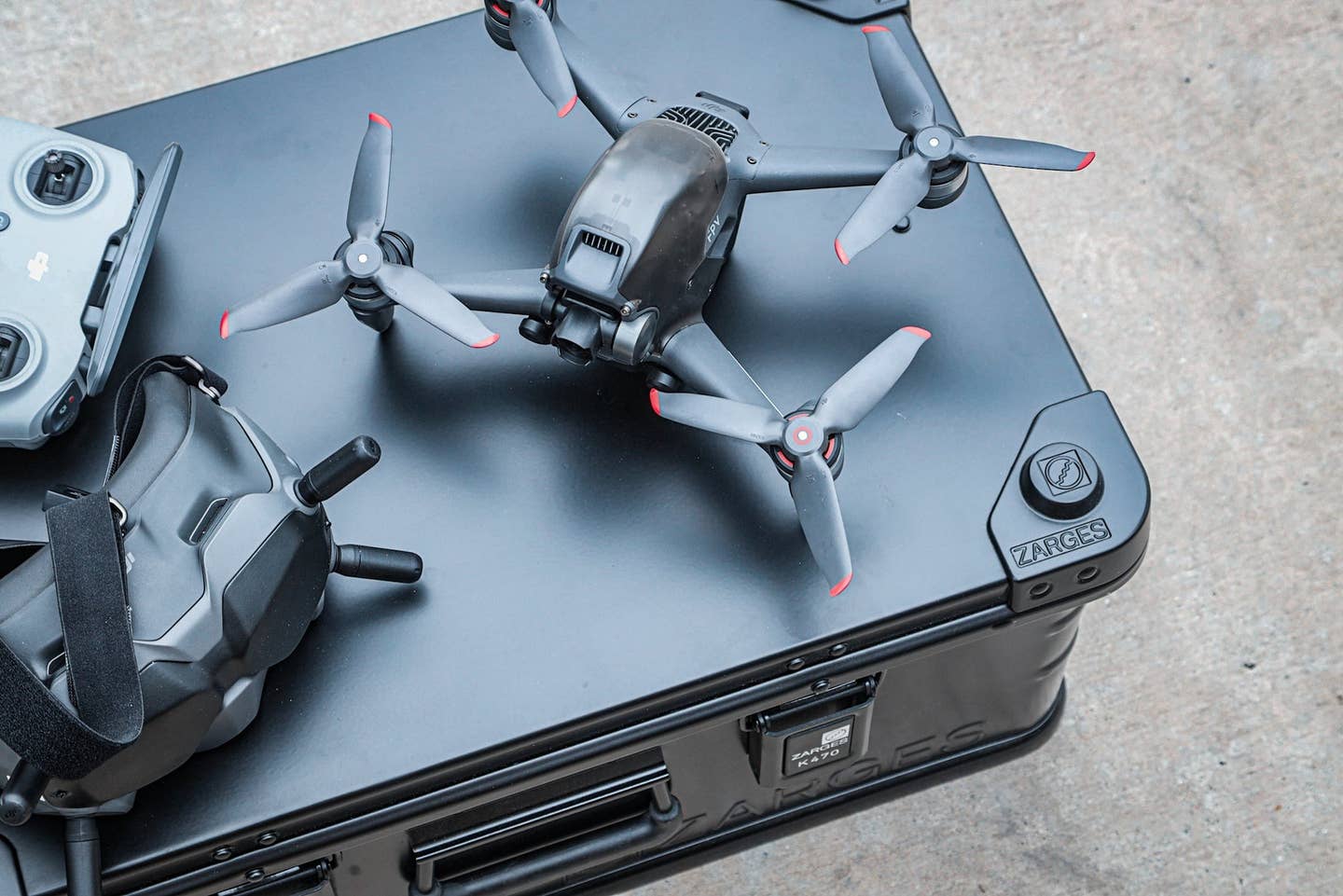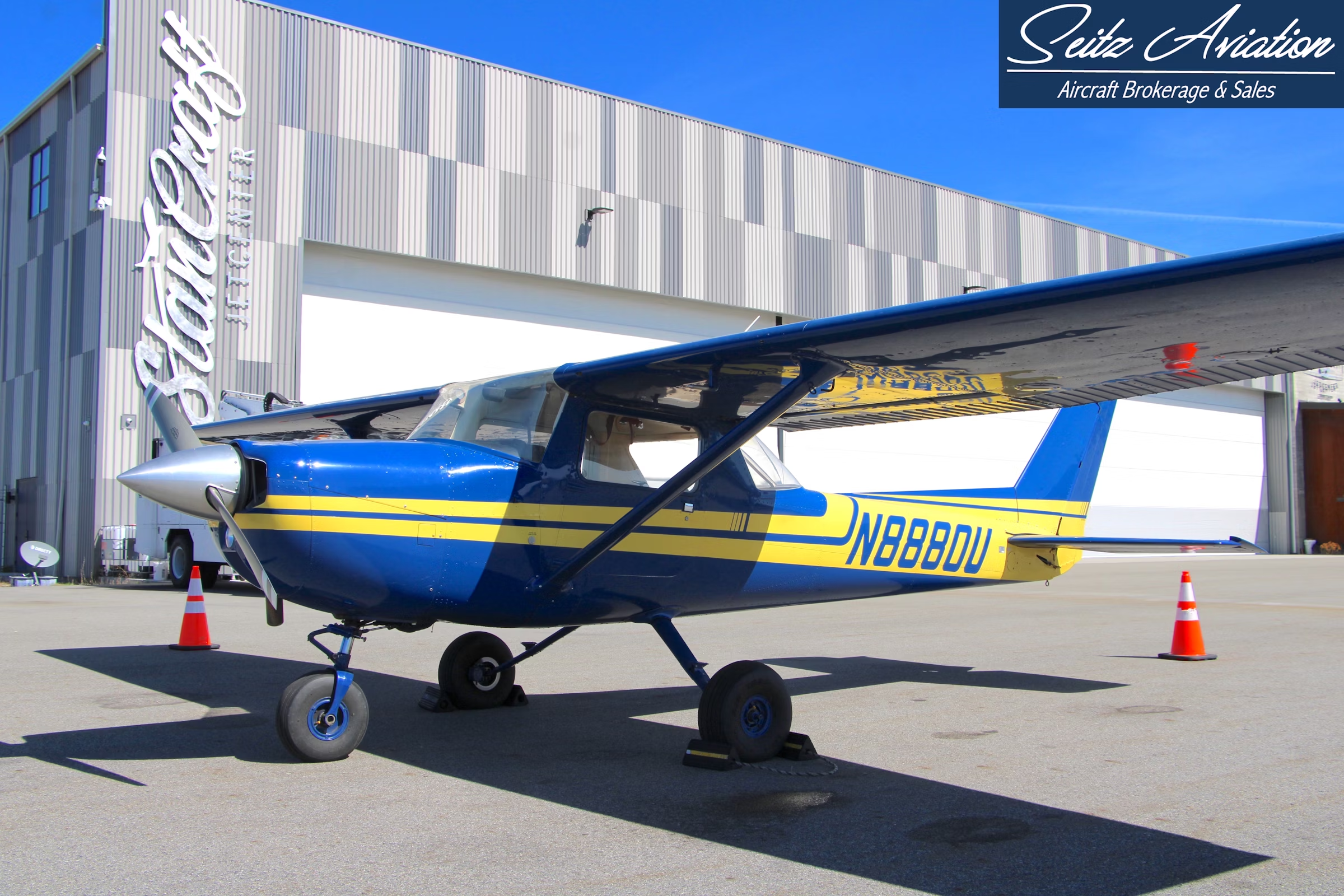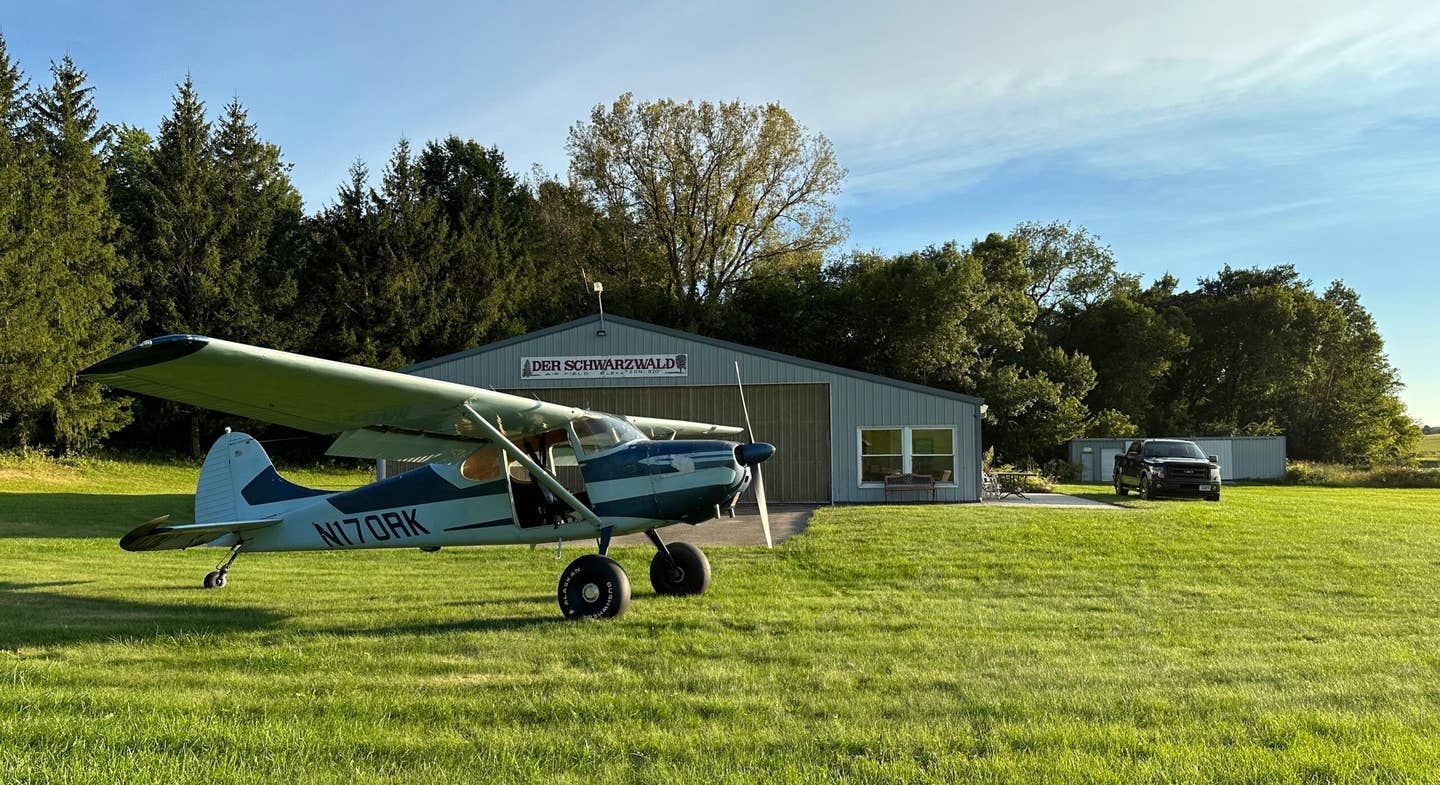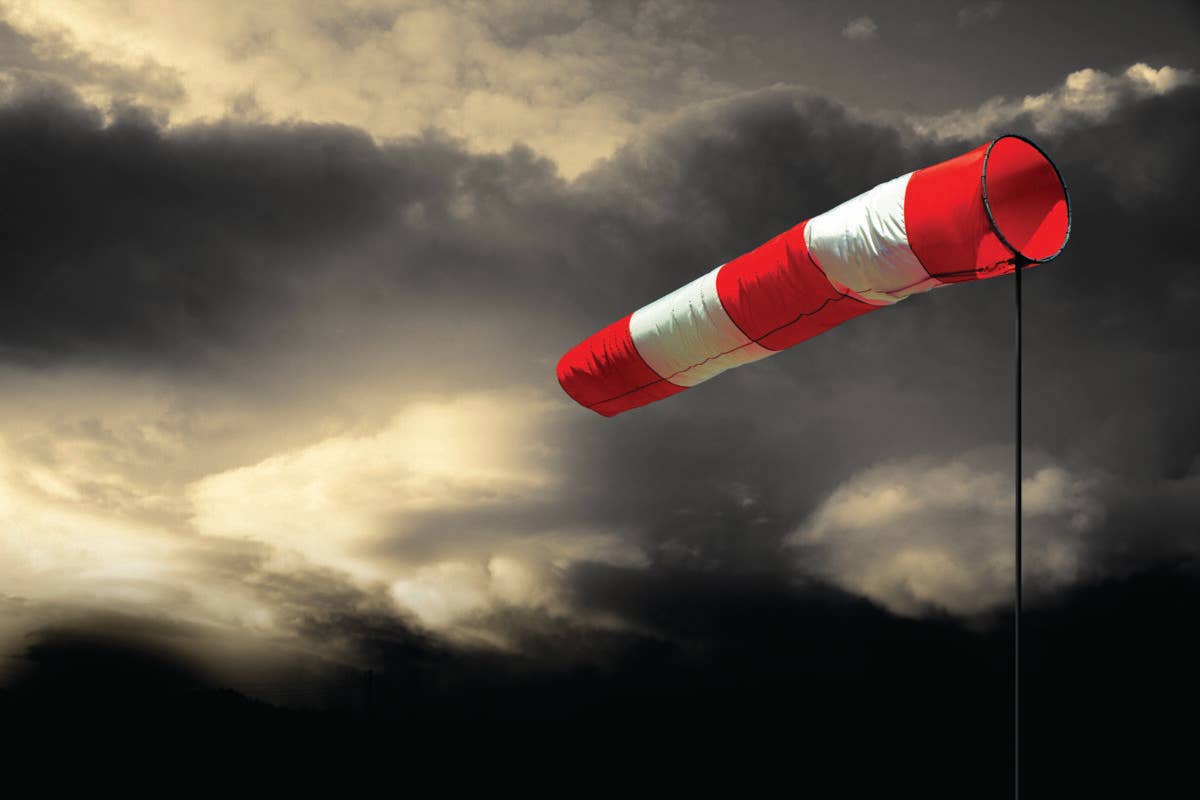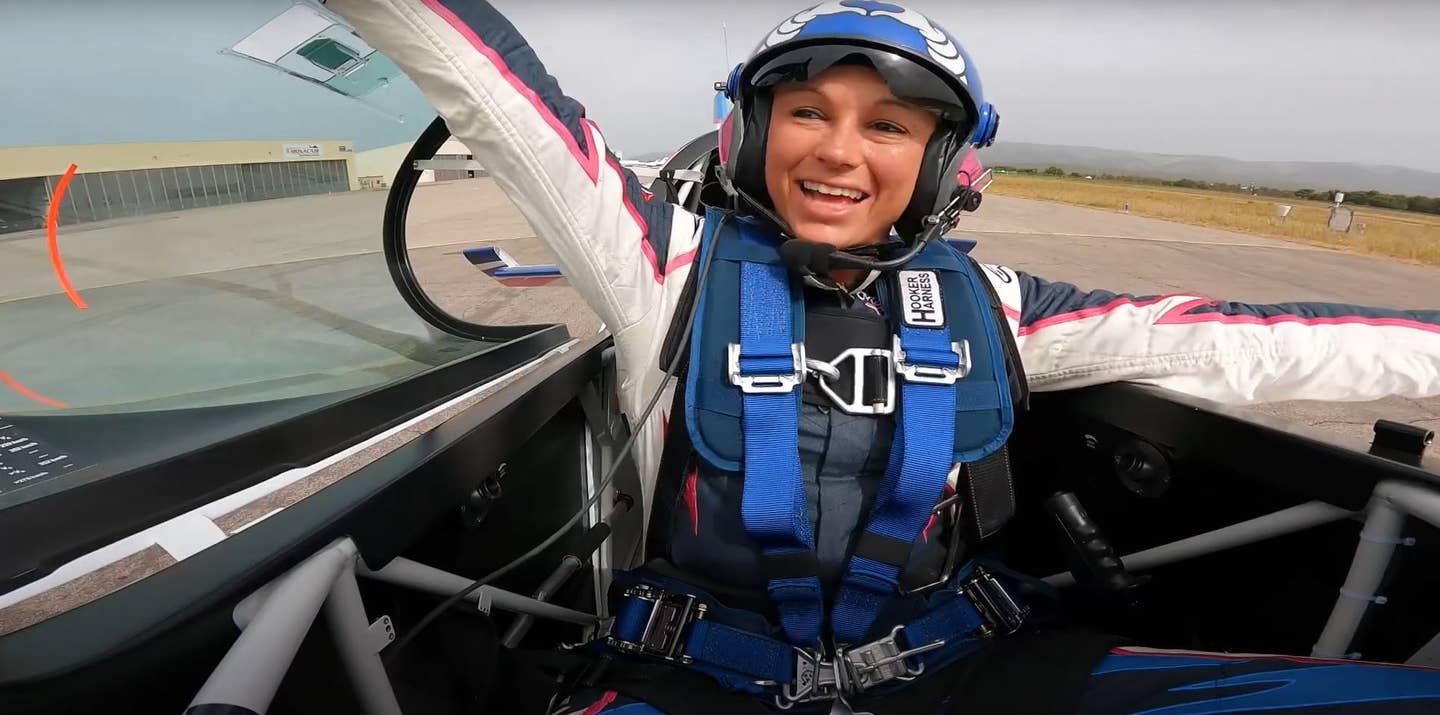
Astles looks forward to competing in the new Air Race with her own team, and guiding young people into aviation. [YouTube Screengrab: Mélanie Astles]
Mélanie Astles hasn’t taken much time off during her career, since the French aerobatic pilot took savings she had from working at a petrol station and turned it into her initial pilot certificate, starting when she was 21.
So, the pandemic presented a somewhat frustrating hiatus for a champion who’s ready to race. The Unlimited and Advanced classes managed to fly some competitions, but it hasn’t been the same in the past two years.
The perfect opportunity lies ahead in 2022 with the reboot of the Red Bull Air Race—the same series where Astles competed in the Challenger Cup in 2016, 2017, and 2018.
The new race? It’s simply called the “Air Race”—and the new organization behind it plans to hold races in at least seven locations starting in May:
- Greece
- Portugal
- U.K.
- Russia
- Egypt
- Istanbul
- UAE
Twelve elite race teams have already signed up for the 2022 season and those projected in 2023 and 2024, with 12 additional challenger pilots competing in a second-tier event Aero Series.
The Air Race will highlight new technology, including use of “zero-carbon” fuels from the beginning, as possible, and eventually expanding to include electric vertical takeoff and landing aircraft (eVTOLs) when they gain certification and are able to race.
A New Team for Astles
As it turns out, Astles will lead one of those elite teams into the competition this summer.
She had tasted success in aerobatic competition before the Red Bull Air Race, first winning the French Cup in 2008, and ascending to top female and seventh overall at the Aerobatics World Cup Championship in 2014. She has five French titles to her credit, and she’s considered to be one of the top five female aerobatic pilots worldwide. Last year, her aero club based in Paris won the country’s team championship in the upper levels, and overall for the season—and she said it was fun to notch a win for the club.
But when she talked with FLYING earlier this month from her home in France, she spoke energetically of another goal—to create a new aerobatic team. In preparation for the Air Race, Astles has launched a project to offer skill-building and training to young people interested in aviation with an eye towards bringing them up the ranks.
“I’ll be really happy to own my own team, and be flying with [them],” said Astles. “Hopefully it will be a life project—I’ll be training new pilots. It’s my time to give back. It’s good to fly the race, but the whole thing, to give back to aviation, and to inspire young girls and men to enter aviation—not just piloting, but this amazing world.”
She understands the importance of mentorship.
“It’s all about finding a good person to get started,” said Astles, referring back to the instructor she had who helped her break down her perceived limitations and become an aerobatic champion. “I could have just faced a closed door…he was such a passionate pilot. Basically he destroyed all of my limiting thoughts: ‘You can’t be a pilot because you’re a girl, you can’t be a pilot because you haven’t studied, you can’t be a pilot because you’re not rich.’”
“You can change a person’s whole aviation career by being nice.”
How It’s Done—in France
She began flying back then in a Cessna 152, and then a 172—the stall warning horn “cries like a kitten,” she recalled with a laugh in FLYING’s interview.
The process of competition in France is similar to that in the U.S. “In France you have six levels,” she said, “and the first I would say is the equivalent to the Sportsman level, and it goes to the Unlimited level, which is the highest one. This is the level I’m competing in.
“If you want to go from Level One to Level Two, you will need to go to a contest, and you will need to perform a score that is above 70 percent.” If a pilot participates in a contest and achieves an average mark of more than 70 percent, they can go to the next level. “There are between four and five official competitions in a normal year. Level one through three is on the two-seat airplane, and level four to six is a one-seat airplane that has more than 300 hp.”
The fifth level is between advanced and unlimited, and it’s specific to France. There’s a very big gap between four and six, and there’s a selection process to fly Level Six, which is Unlimited.
The aircraft used most often for levels one, two, three, according to Astles?
“We have a lot of Cap 10s, and we have the Extra 200 now, and CR 100 and the experimental models.”
In levels four to six, the aircraft are perhaps 80 percent Extra 330 LC, now NG, and a few Cap 232 in France—“They are still surviving!”
Compete Like You Train
Astles has given a lot of thought to how to combat the stress of competition that would consume her during past championships.
“I’m passionate about the mental [part], how you can hack your brain.”
Mélanie Astles
“I think to perform well in a competition, you should aim to fly like you do when you’re training. Because when you train, you’re relaxed, you don’t have this pressure, so basically if you can manage to fly the competition the same way that you would train, then your results will be close to how you really fly.
“I’m passionate about the mental [part], how you can hack your brain.”
She pointed to breathing techniques, and tricking your brain into thinking the figures ahead don’t matter if you do well. Once you reach the level of your competition, it’s the one who flies relaxed who wins. It would work for the private pilot exam—it’s setting down the level of your expectation, so if it doesn’t work, that’s OK.
“The last three competitions I did, I won, and I’ve been using this method.”

Sign-up for newsletters & special offers!
Get the latest FLYING stories & special offers delivered directly to your inbox



